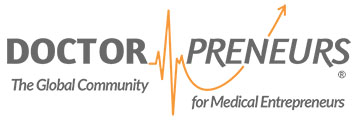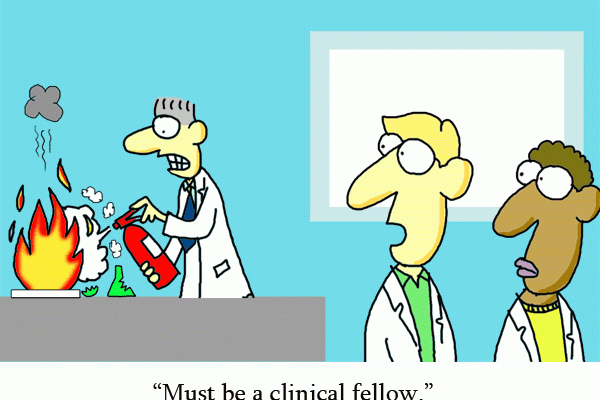Anna is a Fellow on the Medical Director’s Clinical Fellowship Scheme. She is currently working within the Faculty of Medical Leadership and Management.
 Walking fifty meters past the protestors sitting at the gates of 10 Downing Street and up to the front door of the office where I now sit, doing a full time ‘desk job’, I still can’t really believe I’m here! It’s a far cry from the Community Mental Health Team outpatients clinic that I’d been doing as part of my Core Psychiatric Training with the Oxford Deanery.
Walking fifty meters past the protestors sitting at the gates of 10 Downing Street and up to the front door of the office where I now sit, doing a full time ‘desk job’, I still can’t really believe I’m here! It’s a far cry from the Community Mental Health Team outpatients clinic that I’d been doing as part of my Core Psychiatric Training with the Oxford Deanery.
I’ve been lucky enough to be given one of 11 places on the nationally run Medical Director’s Clinical Fellowship Scheme, originally born through an initiative of Liam Donaldson and run by the Department of Health. Over the past few years it has evolved and now has a lot of backing from a variety of ‘host’ organisations, including the Royal College of Physicians, GMC, BUPA, the Health Foundation and BMJ to name but a few. It’s home is now in the newly launched Faculty of Medical Leadership and Management, with active support from Professor Sir Bruce Keogh, NHS Medical Director. Doctors on the scheme get to work in their host organisation on projects to gain experience in health policy, analysis and strategy. But further to this there is the highly valued training scheme, including action learning sets and mentoring facilitated by both ex-Fellows and senior clinicians with similar interests. We have monthly training days either organized at the sponsor organisations or more formal courses including the Lead and be Led Course, and The Westminster Experience.
If I’m honest, in applying for the NHS Medical Director’s Clinical Fellowship Scheme (CFS) there wasn’t really a grand ‘master plan’. In fact, I found the job entirely by chance, having impulsively downloaded the BMJ’s careers iPhone app and for interest’s sake searched for any job that was ‘not a hospital job’. The fellowship scheme came up and as soon as I saw it, I knew it was for me as it played in beautifully to some of the things about my career I had become concerned about.
Leading up to this year, I’d been feeling increasingly frustrated by the medical career ‘conveyor belt’ I’d found myself on… F1, CT, ST, Consultant…. I felt encouraged to get through it all as quickly as possible, with ever looming threats of ‘no jobs’, so I could get the prize of being a Consultant. All this, with what seemed to be with no real thought about what I really wanted other than a nod in the direction of specialty, something that many of us hadn’t even had the luxury of choosing as a result of MTAS. It struck me that I’d spent a lot of time thinking about how to get to the goal of being a consultant, with no real consideration about whether I even really understood what this job really entailed; or if I actually wanted to do it.
By chance, I found myself meeting a range of people who had really different careers, all within medicine; an SpR with a number in the Pharmaceutical industry, a Doctor who left to go and work for McKinsey’s and one of my colleagues who took a year out to work for the BMJ. It was Narnia – a whole world began to open up that had been here in the wardrobe of my medical career all along and I started to understand there were all sorts of options out there that I hadn’t even realised were available to us.
During my medical career, I’ve been involved in various projects that have focused on service delivery and improvement. I have an accountancy background before medicine, with time in private practice and industry, so I’ve been exposed to a few different working environments. Working in the NHS has been quite frustrating at times and led me to seek out opportunities to think about how services could be delivered more effectively in the places I’ve worked in. The job spec for the CFS looked exciting to me, as it was a means to getting more formal exposure to this on a bigger scale, in a wide variety of settings and with the opportunity to learn about how health care policy is devised and implemented. It was an opportunity to tie it all together.
Having started on the CFS, it’s clarified what’s key to me in my career and what keeps me feeling motivated and engaged to go the extra mile in my job. I think it’s about feeling valued. In fact, being valued is something that’s at the core of this programme. I feel people are interested. I feel that people care about me both as an individual and about my professional development. It’s not about my ego, rather it’s a sad reflection that in my 4 years as a Doctor there have been times when I have felt pushed into things I don’t agree with or can’t relate to, not respected and taken for granted. I imagine that I’m not really alone in this.
The difference to me between these approaches even in a few weeks since I started has been immense. Feeling like a valued employee, an asset and something to be nurtured, while being encouraged to pursue projects that interest me in an area I am passionate about, has been an inspiring and liberating experience. It’s motivated me to get stuck in, to think about the problems that face our healthcare system, want to work harder and to get involved in helping to improve it. For me, it’s not about ‘not being a Doctor’, but how I can use these skills within my profession to improve the service I work in and at the same time fully exploit the variety and complexity that a career in medicine can offer.
It’s also got me thinking about all that unleashed potential out there. With about 60,000 junior Doctors in training, I wonder what proportion feel valued and engaged? Consequently, I wonder about the lost opportunities for our NHS. Nuturing and developing our juniors should be fundamental to our training programmes and not something of a revelation. We’re a talented lot. What effect might nurturing that talent and empowering us to feel we can make a difference have for our health care system? More importantly, how might it improve the outcomes of the people it aims to treat?
I am excited about the year ahead. I hope it will provide an opportunity to think about the possibilities both within the traditional career path and outside of it. I also look forward to gaining experience on projects looking at how we can develop our healthcare system and the training of Junior Doctors. I imagine it will offer the chance to develop a host of skills that can be used in whatever field we end up in. Exciting times!

